Intuitive Eating Q&A: Part 3

Intuitive Eating can be hard to wrap your head around at first. If you are starting the Intuitive Eating journey and are feeling a bit lost you’ve come to the right place. In part 3 of this Q&A series, I’m answering some intuitive eating common questions, such as where does nutrition fit into intuitive eating? Is intuitive eating appropriate for everyone? and “My doctor told me I need to lose weight – is this necessary?” Read on for my answers and tips to help you navigate the Intuitive Eating process.
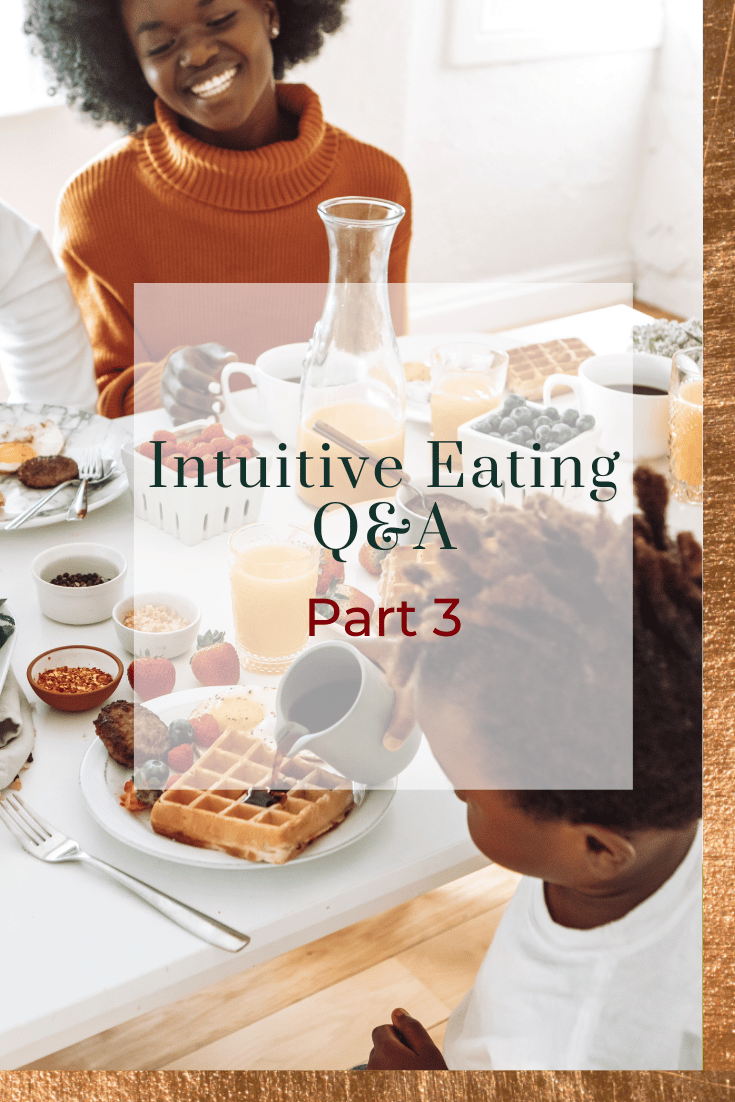
I’ve gotten a lot of questions from people about intuitive eating. If you haven’t yet, make sure to check out Part 1, Part 2, Part 4, and Part 5 of this Intuitive Eating Q&A series.
How do you go about intuitive eating while advocating for eating healthy foods, without overthinking your food? Like what if your body does not want to eat healthy food, even after intuitively eating for a while?
At first, when starting out with Intuitive Eating, nutrition has to be put on the back burner. Because when you’re used to dieting, and not listening to your body, choices made based on “nutrition” still come from a diet mentality or a place of restriction or overthinking.
Feeling like you’ll always want less-nutritious foods is a very common concern. It’s important to recognize that it is the dieting mentality that causes overeating and binging or feeling out of control around certain foods. So once you learn to make peace with all foods – and your body knows you can have these foods whenever you want – you’ll be able to truly listen to your body’s physical sensations and feelings of hunger, fullness and satisfaction to decide what foods you want to eat. But you have to go through the period of giving your body whatever it wants so that it begins to know – and trust – that it has access to say, a brownie, whenever it wants one. Only once it really knows and trusts that will you be able to sit back and be able to tell if you really want one.
This is also food habituation – when we don’t have things often or don’t allow ourselves things, they become more special. But the more we have them, the less special they become. So for awhile (and I’m not talking a few days, but more like multiple weeks) doing this may mean that you are often eating less nutritious foods, and that’s ok! Once you get through this time period, I find that everyone ends up naturally coming to a place of eating mostly nutritious foods and some fun foods. Once you’re at this place – that is where gentle nutrition comes in.
Can you practice Intuitive Eating when you have specific health concerns? I am prediabetic and my doctor has recommended a low carb diet. What is the best way to approach this?
First off let me say that intuitive eating is for EVERYONE – so you can certainly still do it with specific health concerns. The problem with diets, even if for specific health issues, is that the restrictions can still trigger overeating or binging. So instead of making things off limits (unless there is truly an immediate life-threatening situation), start by giving yourself permission to eat all foods. Once you do that, eventually you learn to trust your body and overeating or binging slows. You can then make food decisions based on direct experience & for self-care, rather than because it’s off limits.
So in the case of diabetes, that could mean craving a donut, eating it, and then noticing – without judgment – how it makes you feel. Do you have an energy crash after? Does the donut taste good or did you not really enjoy it? Couple this with what happens to your blood sugar. Then you start to piece together what foods give you maximum enjoyment AND help you feel good.
For example, I had a client with pre-diabetes who was always trying to watch her carb intake & measure portions, but eventually she’d “fall off the wagon”. This cycle continued for years. When we started working together she began working on giving herself permission to eat whatever she wanted – while tuning in her hunger, fullness and satisfaction feelings – and over time found that she a) felt satisfied and full and so was snacking less and not overeating; b) didn’t always love some of the foods she used to overeat so didn’t need to eat them; c) many of her craving/trigger foods went away because knowing she could have them whenever made it so she rarely wanted them. Once you work through making peace with food and tuning into your body signals, then you can start implementing some gentle nutrition to help support your health.
I went to the doctor and was told I am “overweight” for my height and should aim to lose a couple pounds to get into a ‘desirable’ BMI, is it really necessary to lose weight to be considered “healthy”?
Sadly this happens a lot in the medical community. I want to begin by first commenting on the word “overweight” – I put that in quotes because “overweight” and “obese” are common words used to describe larger bodies, but those are words that have been developed and co-opted by the medical community to medicalize and pathologize (place disease upon) a person’s body. “Overweight” – that is assuming that there is a correct weight that a body should be at – is rooted in the BMI charts which is a problematic measure that assumes health is based on size which is not the case. The BMI was invented over 200 years ago by a Belgian mathematician (not a doctor or even a health professional). He came up with BMI to help the government allocate resources to the population which had nothing to do with how “healthy” someone was. The original inventor even requested that the formula was NOT to be used to measure fatness or someone’s health status!
The word “obese” also assigns illness based on size. It’s assuming a body is sick or ill simply based on size, not on any other parameter. This is not only incorrect, but it’s stigmatizing and causes shame. People who are stigmatized based on their size can have profoundly negative mental health effects. In fact, studies have shown that weight stigma has even more of an impact on our health than what we eat! So I avoid using these terms because they have no basis in health and end up just further stigmatizing people (and ourselves).
Weight is a highly complex subject. It’s not as easy as adding two and two and getting four. We don’t all start out on an equal playing field because genetics, trauma, abuse, neglect, stress, chronic dieting, and other factors play a big part in determining body size.
It’s no surprise that many clients come to me scared and frustrated about their failed attempts at weight loss. So many people try to eat healthfully, exercise and take better care of their bodies and yet still don’t lose weight. However, when it comes to practicing intuitive eating, I cannot predict if you will lose weight – because it’s not up to me or you. Some people will lose weight, some people will gain weight, and some people will stay the same.
So, what can you choose to do if you are learning intuitive eating and improved self-care, and worry that you’re not losing weight (or losing as much as you would like to)? You can:
- Stop focusing on weight loss. Read this blog for more info on why weight is not a good indicator of health.
- Enjoy and focus on what has improved in your life, such as your relationship with food and your body, self-esteem, and health. This post has suggestions on how to measure progress without focusing on numbers or weight.
- Work on accepting and respecting your body as is. I highly recommend the book Body Kindness as a place to start.
Remember that you’re not a bad person for wanting to lose weight – we live in a crazy, diet culture and weight-obsessed society. However, also remember that this culture’s range of what’s considered “normal weight” is very narrow and impossible for most people to achieve. You may not be able to achieve the weight loss you desire, but you can certainly choose to enjoy your best life and treat your body with care and respect, no matter what your size or weight.
Check out the other posts in the Q&A series:
Intuitive Eating Q&A Part 1
Intuitive Eating Q&A Part 2
Intuitive Eating Q&A Part 4
Intuitive Eating Q&A Part 5
Do you have other questions about intuitive eating? Share in the comments below and I’ll answer them in a future post!
Are you interested in learning more about intuitive eating?
Check out my Unapologetic Eating 101 Course, an online, self-paced program to liberate yourself from dieting and make peace with food and your body.
My team and I also offer virtual one-on-one support – you can check out our virtual intuitive eating nutrition coaching packages.
My book, Unapologetic Eating: Make Peace with Food and Transform Your Life, is also a great resource that includes information, research, and reflection prompts to help you move away from dieting and come back home to your body, so you can live your most unapologetic, liberated life.
Author Bio
This article was written and reviewed by Alissa Rumsey, MS, RD, CSCS, a registered dietitian and Certified Intuitive Eating Counselor. She specializes in weight-inclusive care, intuitive eating, body image healing, mindfulness, self-compassion, and healing from chronic dieting, disordered eating, and eating disorders. Alissa holds a Bachelor’s Degree in Nutrition and Exercise Science, and a Master’s Degree in Health Communications, and is also an NSCA Certified Strength and Conditioning Specialist.
27 Comments
Leave a Comment
share the love
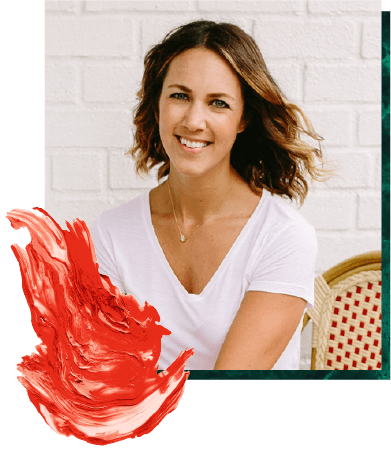
about
Alissa Rumsey, RD.
Alissa Rumsey, MS, RD, CDN, CSCS (pronouns she/her/hers) is a registered
dietitian, nutrition therapist, certified intuitive eating counselor, and the author of
Unapologetic Eating: Make Peace With Food and Transform Your Life. Alissa is
passionate about helping people reclaim the space to eat and live,
unapologetically.
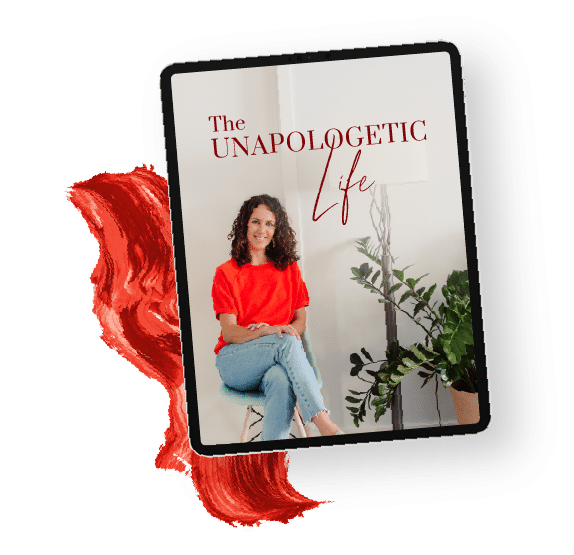
A twice-a-month round-up of inspirational stories, lessons, practical tips and encouragement for living your most authentic, unapologetic life.
The Unapologetic Life
RECENT POSTS
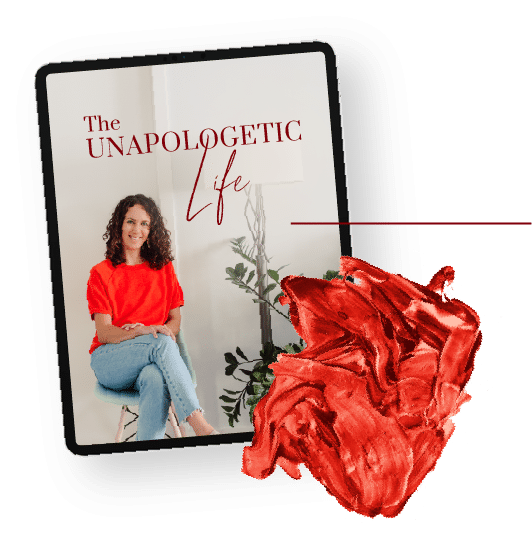
The Unapologetic Life
A twice-a-month round-up of inspirational stories, lessons, practical tips and encouragement for living your most authentic, unapologetic life.






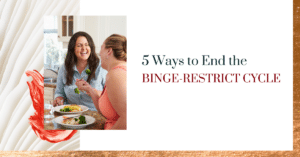
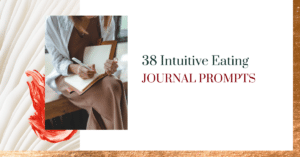
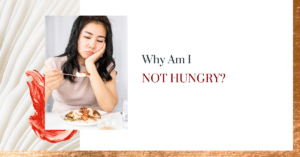
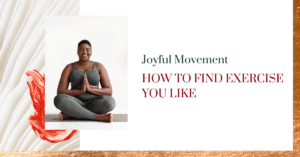
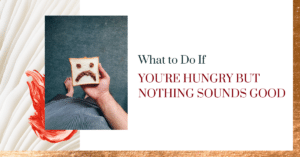
I am underweight and struggle with a restrictive eating disorder. I really like the concept of intuitive eating because I would like to move towards more freedom around eating and a more positive relationship with food. However, when I come across information about intuitive eating it is almost always aimed at people trying to loose weight. So i am insecure about trying to eat intuitively because I don’t have any natural hunger or fullness cues. I find it hard to distinguish between healthy intuition and eating disorder related thoughts. Will my hunger or fullness cues naturally return after a while? Can I trust my body that it will ask for what it needs? Do you have any recommendations how to go about it? Is it safe for me or should I wait until I get to a “healthy” weight before I try it out?
Hi Lea, thanks for your question! If you don’t have natural hunger/fullness cues yet then it’s important to start by having structured meal and snack times 4-5 times per day, until those signals return (having structured eating times will help them come back). I highly recommend that you work with a dietitian and therapist trained in eating disorders. One other note – intuitive eating is not a weight loss method, if you ever see it being promoted as such, know that those people are not using intuitive eating as it was meant to be used!
What if I didn’t diet before kids, stayed the same weight no matter what and was an intuitive eater without realizing it. Three kids later and my weight is higher then I believe my body was meant to be. After 4 months of focus I’m back into intuitive eating (yes, diets got to me after my pregnancies) and my weight has leveled out because I’m listening to my body. Here’s my problem, I’m intuitively eating, me and my body are happy and don’t feel bad about what we eat because we have leveled out at cravings, I feel so liberated but my body seems totally cool to stay at whatever weight it’s at. I don’t go up and down, I’m serious when I say it’s stuck at this number. How do I not want to lose weight, knowing that if I get back to my healthy weight for my body, and then focus on intuitive eating again I’d level out again ? I don’t want to settle for this weight. If I had slowly gained while intuitively eating and then leveled out I would be happy but I feel like my body was forced to gain and now it wants to keep it in case I have another child. Thanks
Hi Melissa, this is a very common concern. We have much less control over our body weight than we’ve been led to believe. During the IE process, it’s important to put weight loss on the back burner. I know this can be really difficult, but it is possible to work through this and to come to a place where you accept your body, no matter what weight you’re at. A dietitian trained in intuitive eating and body image can be really helpful during this process. We offer online coaching – if you’re interested in learning more you can check out alissarumsey.com/nutrition-coaching
Hi Alissa!
I am an insulin dependent type 1 diabetic, and I have been trying to do intuitive eating for a while. I need to track carbs so that I know how much insulin to give. The easiest way for me to track carbs is to use a calorie counter app. I try not to focus on the amount of calories, but sometimes it can throw me back into not listening to my body.
Do you have any recommendations or ideas for this?
Thank you!
Hi Jen, such a great question. Having to pay attention to your carbs so you can dose insulin certainly adds another layer to this. I would start by bring more awareness to how seeing those calories affects you and start to call it out “this is diet mentality”. Given your diagnosis, I can’t give much specific info here but I’d highly recommend meeting with an intuitive eating dietitian who specializes in diabetes – Lauren Newman is a wonderful practitioner, her info is: https://www.laurennewmanrd.com.
I’m new to this so started reading and listening to everything I can. I’m not diabetic but worry because my parents are (type 2). I came across The Intuitive Diabetic Podcast in my searches. It was a relief to hear her experience. She’s a nutritionist and type 1 diabetic herself. If you’re interested.
I am just now learning about intuitive eating. This is a new concept to me. I have leaky gut syndrome so my doctor is working with me on diet to eat “clean” as he says to help heal. I have such a restricted list of foods because of this. When I do “cheat” and eat chocolate, I can’t control how much of I eat. Before I had any health problems growing up, I remember just eating one piece of dessert or whatever there was with no problem. I think I was intuitive eating without knowing it back then. How do I use this with the strict food list my doctor has given me? I do want to heal but I feel very trapped and think about food way too much.
Hi Cathy, for a specific case like this and given the health issues you have going on, I’d highly recommend working with an intuitive eating dietitian. They can help you tackle your gut health issues, doing so in a way that doesn’t trigger feelings of restriction or all-or-nothing thinking. Please contact us if you’re interested in learning more about this.
Hi Alissa,
I am only just now learning about intuitive eating, despite being a fitness trainer for a decade. My fitness approach is based on reducing stress, mitigating potential health concerns, and becoming strong enough to not have to constantly rely on others for help. I have always approached diet within a framework of tracking calories but not obsessing over types of food, because an awareness of one’s intake can help a person adjust unhealthy habits by becoming more conscious of them. However, this has primarily been successful with people who don’t have an emotional relationship with food and body image. It is much more challenging when it becomes clear that a psychological distortion is a factor. In those cases, I typically recommend a consultation with a therapist to try to uncover the roots of that emotional connection. Short of that, I don’t talk much about food with those who have an eating disorder. However, if I were to introduce the concept of intuitive eating to someone with a binge eating/bodyweight obsession disorder, what would you recommend I start with? Simply telling someone to give themselves permission to have whatever they crave seems very counterintuitive, but I can grasp the psychological paradox at work here.
Hi Adam, thanks so much for reading and for reaching out! I love that you approach fitness from those intrinsic goals/factors, this is awesome. Unfortunately tracking calories ends up not being helpful for most people in the long run, as it disconnects them with their body. For example, what if they’re hungry, but they’re over their allotment that day? Or, what if they are not hungry, but the tracking says they still have calories to use? Our bodies are really good at self-regulating how much we eat – via our hunger and fullness cues – once we make the space to reconnect to those and remove attunement disrupters. I love that you want to introduce IE to your clients – I’d recommend referring them to one of the blog posts I list below; if it is someone who does struggle with binging and body image, I highly recommend a referral to a trained dietitian and/or therapist. I’m happy to connect with you more on this if you’d like to shoot me an email – alissa@alissarumsey.com. I’ve also got a bunch of resources – books and podcasts – here: alissarumsey.com/resources. The Intuitive Eating book is a wonderful starting point for people, and only $8-10 online. You can also point them towards the Food Psych podcast, another great starting point.
Blog posts as a starting point:
-https://alissarumsey.com/intuitive-eating/how-to-start-intuitive-eating/
-https://alissarumsey.com/intuitive-eating/how-to-shift-your-mindset-move-towards-intuitive-eating/
-https://alissarumsey.com/haes/body-positive-instagram/
I have been dieting my entire life. Very successful at losing weight, but not at keeping it off. I had gastric sleeve surgery 3 years ago and lost X pounds. I was close to my “goal” weight when I suddenly became hypoglycemic. I had to change my diet and fortunately gained control of the hypoglycemia. But then started gaining weight. I found intuitive eating when I started search for “another “ solution. I now feel there is hope and i feel very relieved. But I still have some moments of terrifying thoughts of gaining weight. That being said, how could an overweight person benefit from intuitive Eating, especially when their health is failing due to comorbidities from the extreme weight? Most extremely overweight people say that they never feel satiated, so they may just keep gaining weight and get sicker?
Hi Susan, health is not as inextricably linked to weight as we’ve been taught. Yes, there is some correlation between weight and health risks, but there is very little evidence to show that weight causes any health problems. In terms of modifiable risk factors, our weight is not something we can really control or manage – our body will do with it what it will; what we can (somewhat) control is our behaviors around food, movement, stress, sleep, and coping skills. These are ‘actionable’ things that we can do to try to improve our health; weight is not an action. In terms of not feeling satiated, this can have many causes included restricting/dieting – so dieting to try to lose weight doesn’t actually help, but causes harm – it causes us to be disconnected from our body’s appetite/satiety cues. In terms of fear of weight gain, this post may be helpful: https://alissarumsey.com/intuitive-eating/fear-weight-gain/
Great Q&A post, Alissa! As a healthcare provider, I’m newly venturing into offering support to clients using the Intuitive Eating framework. So many women come to me with weight loss somewhere on their health wish list, if not at the top. How would you approach this request with someone not specifically seeking IE, but wanting to lose weight and stuck in the diet mentality? Also, what’s the best way to come out as an intuitive eater/healthcare provider when you feel you’ve been complicit in diet culture professionally for so many years? My eyes are wide open and I’m committed to helping my patients see the truth, too!
Hi, such a great question! I think it’s important to meet clients where they are, while also making sure that all your marketing materials/website/social media/etc are all weight-inclusive and aren’t promising weight loss or using words like “weight management”. I tell clients that it’s normal to want to lose weight given the crazy diet culture we live in, and we certainly can and will explore more about weight and body size and how they feel about it, but that I don’t know what their body is going to do (and neither do they – i.e. set point theory, etc). I love that you are committed to this, it’s a wonderful path 🙂
Hi Alissa,
How about those days when you have no appetite and don’t want to eat anything? (eg. period) but you’re forcing yourself to eat because well, it’s meal time and need to feed the body nutrients. Is it okay to not eat? Never had an eating disorder.
Hi Erica, great question. No matter what, our bodies need consistent fuel throughout the day. If something has blunted your appetite, like anxiety or stress for example, it doesn’t mean that you shouldn’t eat. This is the case where you use your brain knowledge, like “Ok I’m not feeling that hungry, but I know I need to eat something for energy/etc”.
So I’ve started with the process of intuitive eating as a way to love and accept my body more. I’m also the type that sticks to a healthy eating 70% of the time but for the remaining 30% I go REALLY big which is obviously silly. Anyway I’m just a little concerned that I might be eating too little, in terms of the total daily calories recommended. I eating only when I’m hungry and I seem to need very little food to get full.
Hi Khangwi, it’s possible that your hunger cues have atrophied a bit, in which case they wouldn’t be the best thing to follow in terms of when/how much to eat. Most people need at least 3 solid meals per day plus several snacks; eating more frequent meals/snacks may be helpful if you’re getting full quickly. I’d also recommend checking in with a dietitian who can tell you if you’re on the right track for meeting your needs.
I had a partial hysterectomy last year, and although most women who had it done said they were happy they did it, I’ve not had the same experience. While I was gradually gaining some weight due to what I believe was hormone related, I did diet consistently and did most of the things mentioned you do on a diet. I as a result just kept on putting on weight. Since my hysterectomy, although I was able to keep my ovaries, my weight is at its highest. This I know is not where my body is at its happiest. I’m not looking to be any size I shouldn’t be, but I was wondering if you have had any clients who have had luck with intuitive eating post hysterectomy. Were they able to have there body regulate to a weight they needed to be?
Hi Brandi, everyone’s body is different and everyone responds differently. If we consistently feed, nourish and respect our bodies, and don’t restrict or diet, we need to trust that they’ll bring us/keep us at the weight that is right for us – but that may be a different weight for you than you had pre-surgery. I’m sorry you are struggling, please reach out if you need any more support – we’d be happy to work through some of these things with you.
Hi!
I’m a young adult with a history of being quite naturally thinner. Unfortunately when puberty hit, as it does, I gained quite a bit of weight and I became extremely insecure due to my body gaining fat and just becoming overall thicker. I’ve grown to fear food and am worried I’ll gain too much weight while in the over-eating period before my eating habits stabilize and not be able to get back to what I would consider my average weight.
I went from feeling guilty and over eating constantly, to restricted and over exercising, to obsessing over calories to where I am now- always thinking about food and it’s nutrition and worrying about it. I would really like to just leave it behind me and just eat healthy cause ~I~ feel like it and want to.
I’m what one would consider moderately active, I go for a run every other day and walk and do yoga on my off days (which I do enjoy, so exercise isn’t a problem ;)) but I’m still so scared to eat. I guess what I’m asking is will intuitive eating lower my self-esteem? Sometimes I feel like where I’m at now physically is the best it’s going to be and fear is what’s holding me back from being mentally healthy too! 🙂
Also, if you eat until you’re full can’t you gain weight instead maintain it? Cause certain foods are less filling but higher calorie wise. How can I trust my body if all it wants is sugar haha.
Sorry for all the rambling ahh! I’m just really tired of thinking about food all the time and this seems like a wonderfully supportive community. ?
Thanks for your question, Ellie. It sounds like you’re feeling fed up with constantly thinking about food, which is totally understandable! It’s actually been found in studies that intuitive eating is associated with increased self-esteem, no matter what size body someone is in. By following the intuitive eating principles and allowing yourself unconditional permission to eat, you’ll find that you’ll start to trust your body, and overeating will diminish. Building a healthy relationship with food and a trusting relationship your body will help to increase your self-esteem, not lower it. Some people do gain weight if they are below their natural set point; other people stay the same. It is normal to gain weight, at least at first, if you’ve been restricting. This will level out eventually, it just takes some time, patience, and allowing yourself unconditional permission, while getting curious about your behaviors, thoughts and feelings. You may also benefit from working with an intuitive eating dietitian, as they can help you work through some of these fears and explore adding back foods in a way that feels safe. You’re welcome to check out our nutrition coaching page for more info: http://www.alissarumsey.com/nutrition-coaching; you can also find other certified counselors on the intuitive eating website: https://www.intuitiveeating.org/certified-counselors/. Please let us know if there’s anything else we can do to support you! ~Alissa
Hi Alissa,
I am 16 years old and just starting my intuitive eating journey. I have struggled a lot with feelings of guilt and shame around what I eat and when I eat it. In the past, I would force myself to follow a strict schedule of meals, I guess to feel like I had control. I also have a hard time with labeling foods as good and bad. There are many fear foods that I have not eaten in a very long time. So, I have two questions. One, last night I was really craving ice cream, but I was not hungry. Should I listen to my cravings and eat the ice cream, or since I am not hungry should I ignore the craving? Two, sometimes I have found myself being hungry before my “scheduled breakfast time”. Do I eat right then because I am hungry, or should I wait?
Hi Bridget, a few thoughts: 1) physical hunger is not the only type of hunger or the only reason to eat – taste hunger, emotional hunger, planned hunger, and more are all real and valid reasons to eat! 2) It’s best to eat whenever you feel hungry, even if that’s outside you’re ‘normal/scheduled’ breakfast time – the more and more you honor your hunger, eating each and every time you are hungry, the more body trust you’ll build back.
Thank you so much for this article! My question is: is loss of appetite common in the initial phases of intuitive eating. I went through a period where I was allowing all foods and eating a lot of the foods I previously binged on and for the past couple weeks I have had no appetite.
Hi Lauren,
This sometimes can happen – as you start allowing more and more foods, and habituating to them, they can feel less exciting and it may translate as less appetite. Other things can blunt or diminish appetite including stress, anxiety, depression, certain exercise, and more. Even if you don’t feel hunger cues, it’s important to be eating “enough” which for most people is going to be 3 meals/day and several snacks. If it continues, I recommend checking in with a non-diet dietitian or other healthcare professional to see what is going on.